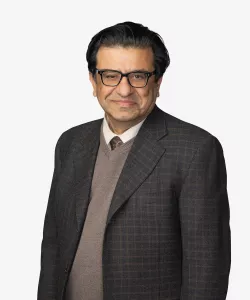Investor-State Disputes Registered at ICSID Surpass 1,000 Cases
The International Centre for Settlement of Investment Disputes (ICSID or the Centre) announced on August 8, that it had registered its 1,000th case under the ICSID Convention and the Additional Facility. While the Centre is not the exclusive venue for investor-state claims, it is chosen approximately 70% of the time by investors.
The Centre, established in 1966, is part of the World Bank Group specializing in the conciliation and arbitration of international investment disputes. It had a slow beginning, registering its first case six years later in 1972, and it remained relatively inactive until the 1990s.
However, consistent with the growth of ratification of investment treaties over the last three decades, ICSID has experienced a steep growth in its caseload. This confirms that foreign investors are increasingly becoming knowledgeable of, and are also relying on, investment-related treaties to bring arbitration claims against sovereign states to protect their property and other legal rights.
Recently ratified trade and investment treaties are also now being invoked by investors for the first time this year. These include the Comprehensive and Progressive Agreement for Trans-Pacific Partnership, the Mexico-Peru Free Trade Agreement, and the Canada-Panama Free Trade Agreement.
Additionally, with the expansion of third-party funding to finance arbitration claims, ICSID’s caseload appears to be on a steeper incline. The rate of success and the ability to collect substantial damages are undoubtedly also factors in the increase in recent cases.
Notably, according to ICSID’s latest published statistics, the fiscal year ending on June 30 was the second busiest in ICSID’s history. Read the latest edition of ICSID’s caseload statistics report here.
Of the new cases registered, 28% were in the oil, gas, and mining sectors, while another 17% were in the electric power and energy sectors.
Among the cases decided by tribunals this year, consistent with historical trends, 53% of awards upheld claims filed by investors, in part or in full, 36% of awards rejected all of the claims on the merits, and 11% of awards declined jurisdiction.
The ICSID case load statistics confirm that while there will be reforms and improvements in certain aspects of the investor-state dispute resolution system in the coming years, there is an undeniable need for foreign investors and states to be able to resolve their disputes before a neutral, objective, and rules-based system. For over five decades, the Centre has met that need and will continue to do so into the future. It has been instrumental in replacing a system of diplomatic protection where investors had to rely on their home state to assert their claims, also known as “gun-boat” diplomacy. This state-to-state resolution process was usually available to only the largest group of investors with political influence in any particular country and also tipped the settlement process in favor of the economically dominant state.




